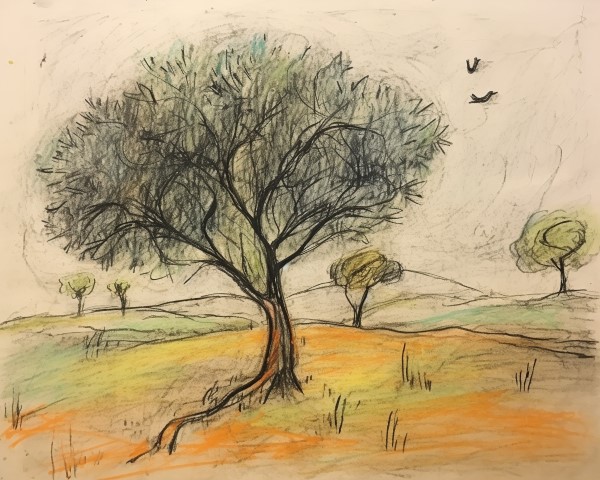KidZone Geography: Greek Mythology
The Tale of Athena's Gift to Athens
In the dawning ages of the world, when gods and mortals walked closer to each other than the stars are to the night sky, there existed a tale of wisdom, valor, and divine favor that would forever echo through the annals of time. This is the story of Athena, the goddess of wisdom and war, and how the illustrious city of Athens came to bear her name and receive her eternal protection.

Athena, born from the head of Zeus himself, was a deity of unparalleled intellect and strategic prowess. Her eyes, as clear as the crystalline skies, reflected the depth of her wisdom, and her spirit, as indomitable as the towering mountains, spoke of her strength. She was revered by mortals and gods alike, her counsel sought in matters of both peace and conflict.
In an era when the world was still carving its features, there lay a city, noble and proud, yet nameless, like a great gem awaiting its setting. This city, perched atop a mighty hill and gazing out over the Aegean Sea, was a jewel of civilization, its people hearty and its lands fertile. It was here, upon this hill, that a contest would unfold—a contest that would determine the patron deity of this burgeoning city and its name for all eternity.
Poseidon, the god of the sea, with his trident that could stir the oceans and shake the foundations of the earth, challenged Athena for the right of patronage. The gods, keen to witness this contest of power and wit, gathered as the people of the city looked on with bated breath, their futures hanging in the balance.

The first to present his gift was Poseidon. With a mighty strike of his trident upon the ground, a spring burst forth. However, this was no ordinary water, but saltwater, as bitter as the depths of the ocean, rendering it undrinkable and of little use to the city's inhabitants. Poseidon's gift, though grand, was not well-suited to the needs of the people, for what is the splendor of a gift if it does not enrich the lives of those it is meant to serve?
Then came Athena's turn. The goddess, with a grace as gentle as the morning breeze, stepped forward. She planted her spear into the earth, and from this spot, an olive tree sprang forth, its branches reaching up to the heavens as if in gratitude to the divine. The olive tree, with its silvery leaves shimmering in the sunlight, was a symbol of peace and prosperity. It offered sustenance in the form of its fruit, wood for building and warmth, and oil that could be used for nourishment, light, and anointment. Athena's gift was one of practicality and foresight, touching the lives of all within the city.
The gods, observing the nature of both gifts and their implications for the city's future, cast their judgment. With a consensus as clear as the daylight, they declared Athena the victor of the contest, her wisdom and understanding of mortal needs far surpassing the might of Poseidon's offering.
The city, henceforth, was named Athens, in honor of its divine patroness. Athena, in her boundless grace, pledged her protection and wisdom to the Athenians. She became intertwined with their destiny, her essence woven into the very fabric of the city's identity. The olive tree, the very emblem of her victory, stood as a beacon of prosperity and peace, its roots as deep in the earth as Athena's protection was in the hearts of the Athenians.

Under Athena's patronage, Athens flourished like a garden in the spring, its people thriving in the arts, wisdom, and warfare. The city became a beacon of civilization, a torchbearer of knowledge and culture whose light reached the far corners of the world. Temples were erected in Athena's honor, the most magnificent of which was the Parthenon, a testament to the reverence the Athenians held for their patron goddess.
Yet, the tale of Athena and Athens is more than a story of a contest between deities. It is a narrative that underscores the virtues of wisdom over brute strength, of the nurturing hand that guides growth and prosperity. Athena's legacy in Athens is a reminder that the greatest gifts are those that enrich and sustain, that foster peace and understanding, and that the true strength of a city lies in the wisdom and foresight of its people and their protectors.
Artwork inspired by this myth:
